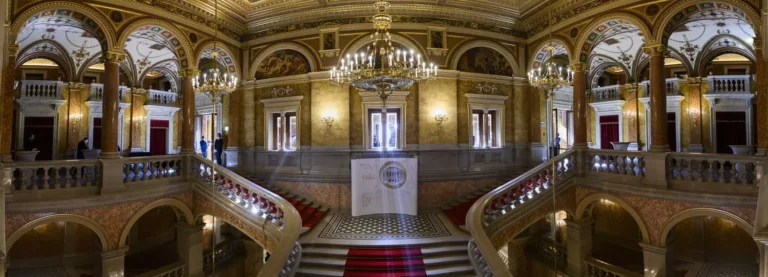opera
A Hungarian world star and a world-renowned scientist have been knighted!

International star to perform arias in Budapest Opera

Internationally renowned tenor of La Scala to appear at the festive gala of the Opera House
The most beautiful excerpts of Italian opera are presented by Fabio Sartori, special guest start of the Tenorissimo festive opera...
A new Götterdämmerung to premiere at the Hungarian State Opera – PHOTOS

Le Monde: Hungarian composer’s opera performed in Paris was a masterpiece!

The Hungarian State Opera announces 2022/23 season at the refurbished Opera House

State Opera House reopens after revamp – PHOTO GALLERY

Budapest’s astonishing Opera House to reopen on March 12!

Debussy’s Pelléas et Mélisande returns to the Hungarian State Opera repertoire
A new production of Pelléas and Mélisande by Kirsten Dehlholm and Hotel Pro Forma is presented at the Eiffel Art...
After a hiatus of 110 years, La fille du régiment returns to the OPERA – PHOTOS

Klára Kolonits in bravura roles in the new Hungarian State Opera production of Les Contes d’Hoffmann

Hungarian State Opera reopens with Placido Domingo!

Amazing! State Opera House’s Eiffel Workshop opens – PHOTOS

Hungarian National Ballet begins 2021/22 season with a triple bill featuring ‘Sad Case’
World-known opera singers to perform in Budapest in August!

The new Hungarian State Opera production of Andrea Chénier on OperaVision





 ZH
ZH IT
IT DE
DE HR
HR NL
NL FR
FR JA
JA RO
RO RU
RU ES
ES TR
TR
